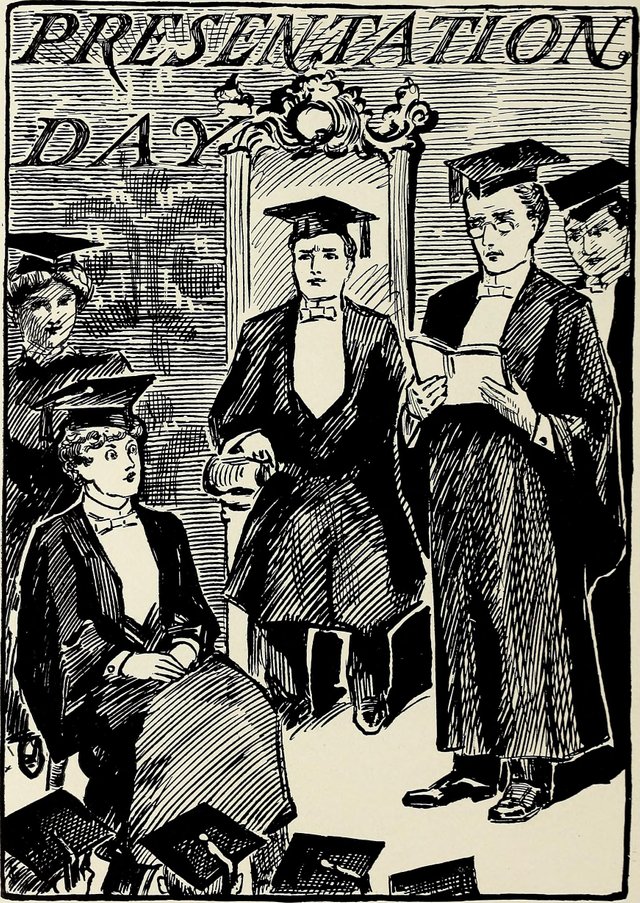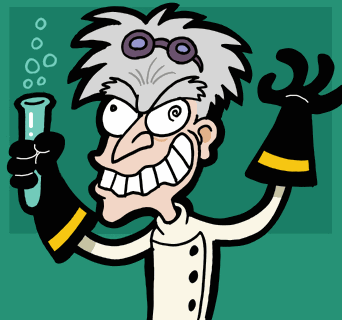There are three problems with attaining a traditional academic education:
- The cost of the education is too expensive
- A lot of what is being taught these days is useless (see the next issue). If you really think your "womyn's studies" major is going to get you a job anywhere other than a college teaching it or as a waitress, you haven't researched your own future..and realize that teaching job is going to go to somebody that parrots the party line better than you. No responsible businesses is going to hire someone with any kind of "victim-studies" degree due to the reasonable assumption that person will spend more time looking for things to complain about than doing the job.
- The academic system is polluted by leftists; look at the race politics, white-bashing, and "critical" studies aspects as a demonstration. Any "study" done "critically" invariably means the introduction is comprised of a thorough tongue-bathing of Marx's backside. While is is not true of every school; it is predominate throughout academia.

Please describe how global warming causes global cooling. Be sure to include the role of the patriarchy in your answer, and don't forget to inlcude the reason why Lord Of The Rings was racist /derp
None of this means that a college education is of NO value, but it does mean that unless you are getting a STEM degree, or if you are a white male, you need to think hard about which college you choose (watch out for the"check your privilege" propagandamies) ), and especially WHAT you are going to study.
On the other hand, if what you are seeking is knowledge, thankfully, the web has it for you.
What subject do you want to learn?
First download Zotero, so you can organize your study material. See Zotero for scholars, students, and archivists - a free tool for organizing and citing your research
Then you are going to a search engine and you are going to type in:
"introduction to X filetype:pdf"
You are going to be looking for syllabuses, degree programs, and general information webpages. Look at those program descriptions say.
For example, my master's program had a certain number of named courses as requirements, and a certain number of named courses as electives. Copy down the names of those courses for your next search engine run as "X" if they sound applicle to your own interests.
Next, look at the syllabi (The OED admits both syllabuses and syllabi as the plural form of syllabus); in fact, collect several syllabi and compare them. Look for common textbooks or references.
Don't forget about Wikipedia as an introduction to a subject. The use of Wikipedia as an academic source is discouraged. However, as long as one is aware of possible bias, Wiki can be used an an overview of a subject for someone that hasn't encountered that subject before. Wiki can also be used to gather citations, again keeping in mind that the citations may be cherry picked to support a particular point of view. Finally, I have found the Talk/Discussion tabs of Wiki useful (often, more useful than the subject page) in that as users of the site engage in "edit wars" over a page's contents, they often justify their edits with supporting documentation.
Then go back to your search engine, and look for the names of those books as "X". Try to collect them in PDF form if possible, as this is easier to store and read than HTML or DOC.
You are going to run across journal articles, webpages, book reviews, etc etc during your search. Skim them quickly, and if they seem relevant, save them to your Zotero reference database.
A membership to Scribd or another such online book depository may help. If you can't find a particular book, don't forget about half-price book stores or Amazon. Look for a FREE version first though.
Beware of college textbooks, and watch for bias. I'll go into critical thinking in your education shortly.
Now, START READING. Compare and contrast what one reference says to another; look up references in your books and add them to your library. Each bit of knowledge challenges you to to support it or attack it. Know your argument.
Now you need to WRITE!
Start a blog, or if you are really shy, keep a personal journal. Writing a blog is better b/c you may get interesting arguments. You may also get trolls, but defending your argument, or realizing a mistake, will sharpen your own knowledge.
Do the assignments in the syllabi, even if no one grades them.
Go to forums and make an argument, write it out, defend it. Look at the supporting evidence others use to argue with you. Forums are also great for asking questions in areas you don't really understand or for finding unique viewpoints.
This approach is much harder if you are researching STEM subjects. For myself, I have always found instruction in these subjects helps more than self-study. But people have taught THEMSELVES these subjects before. Finally, you may want to kick in for community courses if you just can't grasp a particular area of a subject.

Some things you will want to study in addition to your area of interest (these will make help you learn your interest so much the better):
- Critical Thinking - if you don't learn how to double-check your own thinking, then anything you learn is questionable. You might as well just quote Barky Hussein for all the good your reading will do you. I did a post on crticial thinking as far as it applies to government, but the process remains the same. Study critical thinking processes as much as you study your subject!
- Scientific method - Although I address this in speaking about critical thinking, I want to repeat it. Study scientific method whether you are learning a STEM subject or not. So much bullshit becomes more obvious as bullshit.
- Teaching Skills - Study teaching techniques as well. Not only can you bore your friends with all you've learned, you can learn better when you apply some of these concepts to yourself.
- Writing skill - Good writing involves organizing your thoughts clearly; this will aid your understanding of the chosen subject greatly.
Learning isn't fun for all people. Learning is fun for me. If learning is fun for you, then I hope this helps you learn what YOU want to learn instead of what you are told to learn. Also, for those of that don't think that learning is fun, see if it is funner when YOU are the one choosing the subject and the pace of the study.

Image Sources:
By Internet Archive Book Images [No restrictions], via Wikimedia Commons
https://commons.wikimedia.org/wiki/File:The_cap_and_gown_(1900)_(14762608411).jpg
mad scientist commons.wikimedia.org/wiki/File:Mad_scientist_caricature.png"
Self-teaching is how I truly became libertarian. Being French-speaking, I was able to find the original works (online) of Bastiat, Say and even Cantillon (harder to understand because written in older French). I don't know German, but I still read pretty much everything Mises wrote, and it was a complete revelation.
Downvoting a post can decrease pending rewards and make it less visible. Common reasons:
Submit
Bastiat and Mises are excellent...you might try F.A. Hayek (The Road to Serfdom or The Fatal Conceit) if you can find them in French- Bon Chance!
Downvoting a post can decrease pending rewards and make it less visible. Common reasons:
Submit
I either try the original language or English since the latter is easier to find. I did read some Hayek; the Road to Serfdom was excellent. Intellectuals and Socialism was also good.
Downvoting a post can decrease pending rewards and make it less visible. Common reasons:
Submit
You bring up an EXCELLENT point that I didn't make.
The texts etc often summarize original works, but very often dont require reading the original.
Every time something is summarized, it loses a little subtle understanding
Downvoting a post can decrease pending rewards and make it less visible. Common reasons:
Submit
I also wonder if the wit - especially when it comes to Bastiat - has been translated correctly
Downvoting a post can decrease pending rewards and make it less visible. Common reasons:
Submit
Are you saying my degree in Lesbian Dance Theory is what's keeping me from getting a job??? I read an article recently about guys that went to welding school getting $50 an hr jobs right after graduation.
Downvoting a post can decrease pending rewards and make it less visible. Common reasons:
Submit
LOL
I was reading a discussion (at ace.mu.nu I think) where everybody was laughing at the upper class liberal bobbleheads looking down on the tradesmen that serviced their homes (plumbing, AC, etc) while not understanding that the tradesmen made more than they did!
Downvoting a post can decrease pending rewards and make it less visible. Common reasons:
Submit
I really wish I had learned to weld. I learned diving in the Navy and underwater welders make more than doctors.
Downvoting a post can decrease pending rewards and make it less visible. Common reasons:
Submit
Just stick to the hard sciences and mathematics if you want a return on investment.
.
ColdMonkey mines Gridcoin through generating BOINC computations for science...
Downvoting a post can decrease pending rewards and make it less visible. Common reasons:
Submit
return on investment is one side of education, knowledge is the other side
Downvoting a post can decrease pending rewards and make it less visible. Common reasons:
Submit
Really great breakdown of the process @stevescoins. My work is always pushing 'education', but I say I am looking for knowledge.
Downvoting a post can decrease pending rewards and make it less visible. Common reasons:
Submit
we can set our definitions on this; an "education" is certifiable via degrees and such, while knowledge is hard to quantify.
of course, everybody has their own definitions
Downvoting a post can decrease pending rewards and make it less visible. Common reasons:
Submit